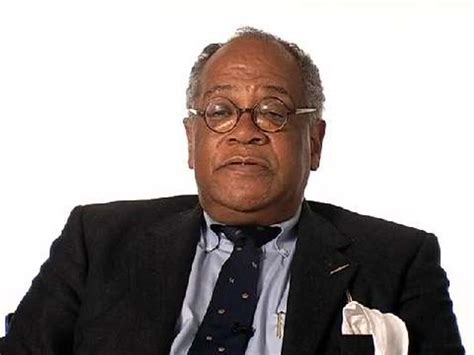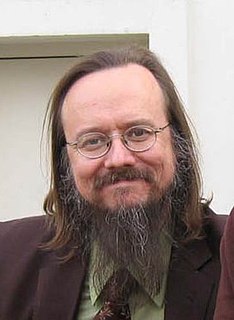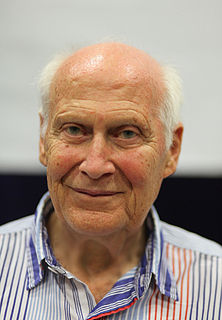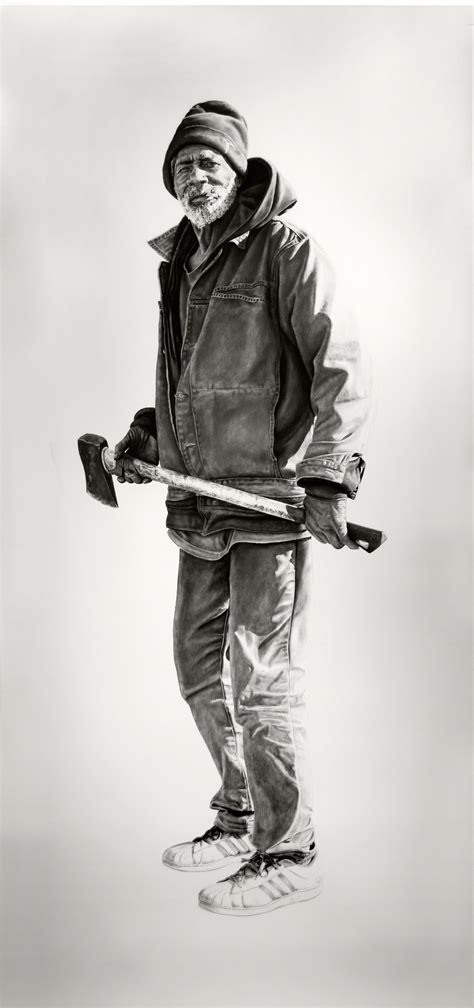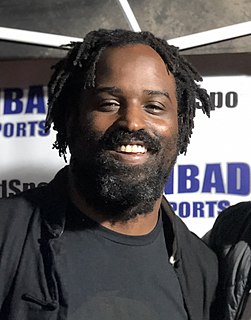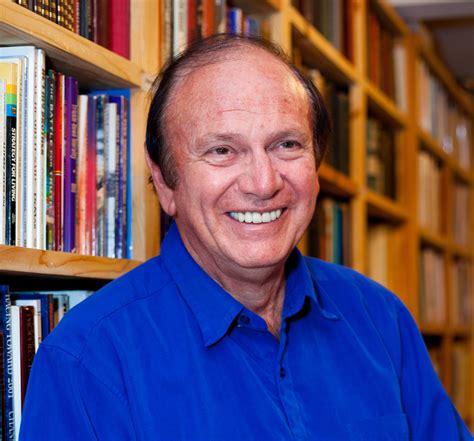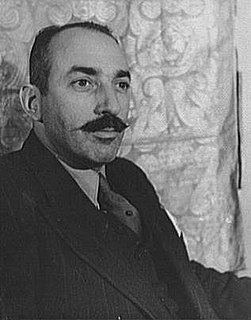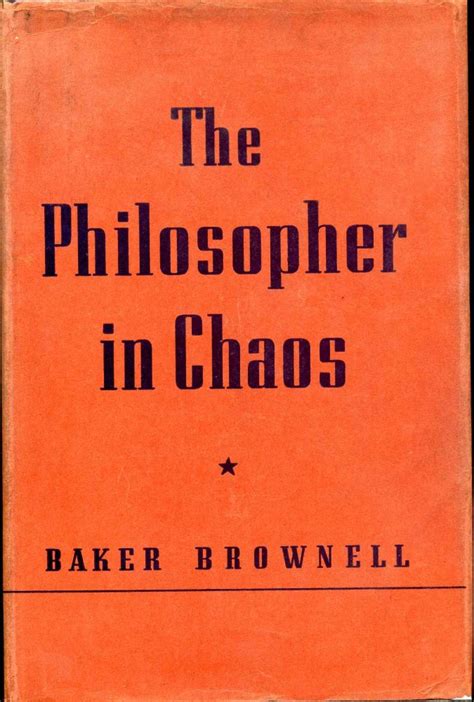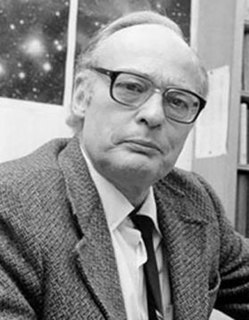Top 1200 Beings Quotes & Sayings - Page 6
Explore popular Beings quotes.
Last updated on December 24, 2024.
The question should not be 'What would Jesus do?' but rather, more dangerously, 'What would Jesus have me do?' The onus is not on Jesus but on us, for Jesus did not come to ask semidivine human beings to do impossible things. He came to ask human beings to live up to their full humanity; he wants us to live in the full implication of our human gifts, and that is far more demanding.
It is the masculine dynamic that has caused our society to place money and corporate profit above human beings. It has allowed the earth to be viewed only as a commodity to be exploited. The feminine perspective sees things differently. She sees the earth and all its inhabitants as entities to be revered and cared for. She sees individual human beings as more important than the relentless advance of capitalism and competition. It is my hope, perhaps indirectly expressed in my work, that the divine feminine is reawakening.
What has actually to be said about the Cause of everything is this. Since it is the Cause of all beings, we should posit and ascribe to it all the affirmations we make in regard to beings, and, more appropriately, we should negate all these affirmations, since It surpasses all being. Now we should not conclude that the negations are simply the opposites of the affirmations, but rather that the cause of all is considerably prior to this, beyond privations, beyond every denial, beyond every assertion.
The real difference between God and human beings is that God cannot stand continence. No sooner has he created a season of a year, or a time of day, than he wishes for something quite different and sweeps it all away. And human beings cleave to the existing state of things. All their lives they are striving to hold the moment fast, and are up against a force majeure. Their art itself is nothing but the attempt to catch by all means the one particular moment, one mood, one light, the momentary beauty of one woman or one flower, and make it everlasting.
I personally do not believe in the word style. Why? Because, unless there are human beings with three arms and four legs, unless we have another group of beings on earth that are structurally different from us, there can be no different style of fighting. Why is that? Because we have two hands and two legs. ... because of styles, people are separated. They are not united together because styles become law.
...chimpanzees, bonobos, gorillas, and orangutans are thinking, self-aware beings, capable of planning ahead, who form lasting social bonds with others and have a rich social and emotional life. The great apes are therefore an ideal case for showing the arbitrariness of the species boundary. If we think that all human beings, irrespective of age or mental capacity, have some basic rights, how can we deny that the great apes, who surpass some humans in their capacities, also have these rights?
Micromessaging -- communicating with other human beings through visual, audible, sublingual means, no doubt predates our ability to speak. We actually read micromessages quite naturally without thinking about them. You might say human beings read each other's micromessages subconsciously, in the same way that one dog understands another dog is unfriendly simply because the dog's fur is standing on end. The dogs read each other perfectly. It's not all that different for people.
Mahatma Gandhi I would say had perhaps a greater spiritual quality whereas Winston Churchill had besides the courage, ability and above everything else, the ability to put into words what his people felt so that he could always lead them. And my own husband I think had great patience, which you need in a democracy because you have to come to do fundamental things, you have to have the patience to have people educated; and then I think he had a deep interest in human beings as human beings.
Why are there beings at all instead of nothing? That is the question. Presumably it is not arbitrary question, "Why are there beings at all instead of nothing"- this is obviously the first of all questions. Of course it is not the first question in the chronological sense [...] And yet, we are each touched once, maybe even every now and then, by the concealed power of this question, without properly grasping what is happening to us. In great despair, for example, when all weight tends to dwindle away from things and the sense of things grows dark, the question looms.
It's easy to sell good news like this, and the authors confidently rely on classic fallacious arguments. They argue by declaration, which is what makes the books so amusing. In matter-of-fact, authoritative tones, the authors tell us how plants and human beings exchange energy - or they describe what angels look like, whether or how they're sexed, how they communicate with human beings, and how they differ from ghosts. Readers might be expected to wonder, How do they know?
In a way, human beings have never been part of the natural order; we're not biological in the normal sense. Normal biological animals stop eating when they're not hungry and stop breeding when there is no sense in breeding. By contrast, human beings are what I think of as "biomythic" animals: we're controlled largely by the stories we tell. When we get the story wrong, we get out of harmony with the rest of the natural order. For a long time, our unnatural beahvior didn't threaten the natural world, but now it does.
Though we may be genetically wired for temporary happiness, we've also been gifted with the ability to recognize within ourselves a more profound and lasting sense of confidence, peace, and well-being. Among sentient beings, human beings appear to stand alone in their ability to recognize the necessity to forge a bond between reason, emotion, and their instinct to survive, and in doing so create a universe-not only for themselves and the human generations that follow, but also for all creatures who feel pain, fear and suffering-in which we are all able to coexist contentedly and peaceably.
Darwin was one of our finest specimens. He did superbly what human beings are designed to do: manipulate social information to personal advantage. The information in question was the prevailing account of how human beings, and all organisms, came to exist; Darwin reshaped it in a way that radically raised his social status. When he died in 1882, his greatness was acclaimed in newspapers around the world, and he was buried in Westminster Abbey, not far from the body of Isaac Newton. Alpha-male territory.
I've come to learn as an adult that love is a hell of a drug. It's one of the most dangerous things that human beings can have. It's also one of the most beautiful things that human beings can possess because love, on one hand, gives you the ability to care for a human being sometimes more than you would care for yourself. Love, unfortunately, sometimes gives you the ability to forgive somebody and blind yourself to the truth.
In the beginning, I want to say something about human greatness. Some time ago, I was reading texts of Kungtse. When I read these texts, I understood something about human greatness. What I understood from his writings was: What is greatest in human beings is what makes them equal to everybody else. Everything else that deviates higher or lower from what is common to all human beings makes us less. If we know this, we can develop a deep respect for every human being.
It is so important not to let ourselves off the hook or to become apathetic or cynical by telling ourselves that nothing works or makes a difference. Every day, light your small candle.... The inaction and actions of many human beings over a long time contributed to the crises our children face, and it is the action and struggle of many human beings over time that will solve them-with God's help. So every day, light your small candle.
There is at the moment in the world a battle going on between those who are pursuing materialistic paths-globalizers of economic growth and those hell-bent on this 'big is better' idea-on the one hand, and on the other hand those who are dedicated to spiritual renewal, more small-scale development, more human scale, more sustainability, more crafts and arts. Where human beings are not just sold to companies and money and those kinds of things. Where human beings have a sacred path.
Our situation on this earth seems strange. Every one of us appears here involuntarily and uninvited for a short stay, without knowing the whys and the wherefore. In our daily lives we only feel that man is here for the sake of others, for those whom we love and for many other beings whose fate is connected with our own. I am often worried at the thought that my life is based to such a large extent on the work of my fellow human beings and I am aware of my great indebtedness to them.
I feel many problems that we are facing, are man-made problems, we have too much emphasis on this secondary thing, forgetting our foundation. At foundation, we are the same human being and we are sharing the same planet. Six billion human beings' future is my future and my future is never separate from the future of six billion human beings.
When you read Marx (or Jesus) this way, you come to see that real wealth is not material wealth and real poverty is not just the lack of food, shelter, and clothing. Real poverty is the belief that the purpose of life is acquiring wealth and owning things. Real wealth is not the possession of property but the recognition that our deepest need, as human beings, is to keep developing our natural and acquired powers to relate to other human beings.
What sort of power is it that really and truly renders the deity present? Human beings automatically think of God as someone who possesses and wields power. Jesus forces people to consider whether that deeply rooted conviction is true or not. In historical terms it is readily apparent that power, left to its own inertial tendencies, tends to be oppressive in fact. So it cannot be the ultimate meditation of God, though human beings might tend to think so
Human beings are very unbalanced and prone to go off on tangents. In every area of life- with too great emphasis on one thing, leaving out another important thing altogether. None of us will ever be perfectly balanced in our spiritual lives, our intellectual lives, our emotional lives, our family lives, in relationships with other human beings, or in our business lives. BUT WE ARE CHALLENGED TO TRY, WITH THE HELP OF GOD. We are meant to live in the scriptures.
Different moralities must share some general features if they are to perform their functions of coordinating beings having particular kinds of motivations. Morality is a cultural construction in something like the way bridges are. There would be no bridges unless human beings used them to move across bodies of waters or depressions in the earth, but a good bridge cannot be designed according to whim, but rather according to what would adequately fulfill their function and the nature of the materials that are available for their construction.
The television screen, so unlike the movie screen, sharply reduced human beings, revealed them as small, trivial, flat, in two banal dimensions, drained of color. Wasn't there something reassuring about it! -- that human beings were in fact merely images of a kind registered in one another's eyes and brains, phenomena composed of microscopic flickering dots like atoms. They were atoms -- nothing more. A quick switch of the dial and they disappeared and who could lament the loss?
The Seascapes are before human beings and after human beings. The Seascapes were there before our presence, and when our civilization is over, seascapes will still exist. Our presence is temporary. Civilization is only 5,000 to 6,000 years. The history of ours, the material history of consciousness, is rather short.
I reached the point in my life now that I understand as human beings we've all done some very horrible things to other human beings, and at some point, I came to grips with the fact that whoever murdered my friend is now an adult, and all I can truly hopefully pray for is that in murdering my friend it bettered their life. And I don't mean that they gained things, but just that they grew up, they regret their decision, they found a place of spirituality or God or whatever people call it.
Our problem with limited resources is not primarily overpopulation; it is greed. Our problem with pollution is not the invention of fluorocarbons or mass transport; it is irresponsibility. The loss of an acre of forest every second, the mass slaughter of elephants for their ivory, the extinction of entire species of plants, insects and animals all over the world is not something that "just happens" because there are more of us human beings. It happens because the race of ruling beings put in charge has almost wholly lost its sense of stewardship. We have turned away from God.
Our actual lives, including our values, our social relations, our self-conceptions, and many of our concepts, are pervasively shaped both by the knowledge and by the fact that we will someday die - that we are subject to extreme temporal scarcity. There is no reason to think that, if we were immortal, the same things would continue to matter to us. We have little or no idea what, if anything, would matter to immortal beings, or even how such beings would think of themselves.
For, owners of their deeds (karma) are the beings, heirs of their deeds; their deeds are the womb from which they sprang; with their deeds they are bound up; their deeds are their refuge. Whatever deeds they do-good or evil-of such they will be the heirs. And wherever the beings spring into existence, there their deeds will ripen; and wherever their deeds ripen, there they will earn the fruits of those deeds, be it in this life, or be it in the next life, or be it in any other future life.
Everything we know has its origin in questions. Questions, we might say, are the principal intellectual instruments available to human beings. Then how is it possible that no more than one in one hundred students has ever been exposed to an extended and systematic study of the art and science of question-asking? How come Alan Bloom did not mention this, or E. D. Hirsh, Jr., or so many others who have written books on how to improve our schools? Did they simply fail to notice that the principal intellectual instrument available to human beings is not examined in school?
Art arises in those strange complexities of action that are called human beings. It is a kind of human behavior. As such it is not magic, except as human beings are magical. Nor is it concerned in absolutes, eternities, "forms," beyond those that may reside in the context of the human being and be subject to his vicissitudes. Art is not an inner state of consciousness, whatever that may mean. Neither is it essentially a supreme form of communication. Art is human behavior, and its values are contained in human behavior.
At a certain point we need to grow up; we need to look inside ourselves for our inner guidance. There are things most human beings know; they just don't want to know them. They know deep down that certain things in their lives are working or aren't working, that certain parts of their lives are functional and others are dysfunctional. But sometimes, as human beings, we don't want to know what's not convenient. So we pretend not to know.
Look round this universe. What an immense profusion of beings, animated and organized, sensible and active! You admire this prodigious variety and fecundity. But inspect a little more narrowly these living existences, the only beings worth regarding. How hostile and destructive to each other! How insufficient all of them for their own happiness! How contemptible or odious to the spectator! The whole presents nothing but the idea of a blind Nature, inpregnated by a great vivifying principle, and pouring forth from her lap, without discernment or parental care, her maimed and abortive children.
Women are human beings, and human beings are a very mixed lot. I've always been against the idea that women were Victorian angels, that they could do no wrong. I've always thought it was horseshit and does nobody any good. Remember, Lizzie Borden got off largely because the cultural agenda had convinced people that women were morally superior to men, so Lizzie Borden was "incapable" of taking the ax and giving her mother 40 whacks.
Human beings are not like sheep; and even sheep are not undistinguishably alike. A man cannot get a coat or a pair oboots to fit him, unless they are either made to his measure, or he has a whole warehouseful to choose from: and is it easier to fit him with a life than with a coat, or are human beings more like one another in their whole physical and spiritual conformation than in the shape of their feet? If it were only that people have diversities of taste, that is reason enough for not attempting to shape them all after one model.
Interestingly, God's remedy for Elijah's depression was not a refresher course in theology but food and sleep... Before God spoke to him at all, Elijah was fed twice and given a good chance to sleep. Only then, and very gently, did God confront him with his error. This is always God's way. Having made us as human beings, He respects our humanness and treats us with integrity. That is, He treats us true to the truth of who we are. It is human beings and not God who have made spirituality impractical.
Human beings have rights, because they are moral beings: the rights of all men grow out of their moral nature; and as all men havethe same moral nature, they have essentially the same rights. These rights may be wrested from the slave, but they cannot be alienated: his title to himself is as perfect now, as is that of Lyman Beecher: it is stamped on his moral being, and is, like it, imperishable.
Seen through the eyes of faith, religion's future is secure. As long as there are human beings, there will be religion for the sufficient reason that the self is a theomorphic creature - one whose morphe (form) is theos - God encased within it. Having been created in the imago Dei, the image God, all human beings have a God-shaped vacuum built into their hearts. Since nature abhors a vacuum, people keep trying to fill the one inside them.
Imitation both unconscious and conscious is par excellence the educational method of the family. It is plain that a considerable part of the adaptation of living beings to their environment, i.e., of beings that are born plastic, is passed on from generation to generation through imitation. Were this not so, much if not all of the road traversed by one generation would have to be travelled by the next generation from the very beginning and without short-cuts. Consequently there would be little chance for the novel adaptation, the propitious individual variation, that constitutes progress.
Human beings of all societies in all periods of history believe that their ideas on the nature of the real world are the most secure, and that their ideas on religion, ethics and justice are the most enlightened. Like us, they think that final knowledge is at last within reach. Like us, they pity the people in earlier ages for not knowing the true facts. Unfailingly, human beings pity their ancestors for being so ignorant and forget that their descendants will pity them for the same reason.
All human beings have failings, all human beings have needs and temptations and stresses. Men and women who live together through long years get to know one another's failings; but they also come to know what is worthy of respect and admiration in those they live with and in themselves. If at the end one can say, This man used to the limit the powers that God granted him; he was worthy of love and respect and of the sacrifices of many people, made in order that he might achieve what he deemed to be his task, then that life has been lived well and there are no regrets.
A doctor, like anyone else who has to deal with human beings, each of them unique, cannot be a scientist; he is either, like the surgeon, a craftsman, or, like the physician and the psychologist, an artist. This means that in order to be a good doctor a man must also have a good character, that is to say, whatever weaknesses and foibles he may have, he must love his fellow human beings in the concrete and desire their good before his own.
No thought about the past or future can pull you away from your present peace and joy. The universe exists in this present moment. No desire can pull you away from this present peace, not even the desire to become a Buddha or the desire to save all beings. Know that to become a Buddha and to save all beings can only be realized on the foundation of the pure peace of the present moment.
But some of the nonsense was evil, since it concealed great crimes. For example, teachers of children in the United States of America wrote this date on blackboards again and again, and asked the children to memorize it with pride and joy: 1492. The teachers told the children that this was when their continent was discovered by human beings. Actually, millions of human beings were already living full and imaginative lives on the continent in 1492. That was simply the year in which sea pirates began to cheat and rob and kill them.
I went to a heavy metal concert. The singer yelled out, "How many of you people feel like human beings tonight?" And then he said, "How many of you feel like animals?" The thing is, everyone cheered after the animals part, but I cheered after the human beings part because I did not know there was a second part to the question.
When human beings lose their connection to nature, to heaven and earth, then they do not know how to nurture their environmect or how to rule their world - which is saying the same thing. Human beings destroy their ecology at the same time that they destroy one another. From that perspective, healing our society goes hand in hand with healing our personal, elemental connection with the phenomenal world.
Feminism is really the right of women to be full human beings and to not be defined only by their childbearing function. Feminism is really the right of women to be human beings. That's it, yet that's so frightening to a lot of people. A full human being wants satisfying work and love. A full human being is entitled to both, and is not simply defined by only one aspect of her being.
That afternoon he told me that the difference between human beings and animals was that human beings were able to dream while awake. He said the purpose of books was to permit us to exercise that faculty. Art, he said, was a controlled madness… He said books weren't made of themes, which you could write essays about, but of images that inserted themselves into your brain and replaced what you were seeing with your eyes.
Not that I ever felt the necessity of proving that all human beings suffer the same way, feel joy the same way, but it happened on my way - when I get close to these people, just by the simple intervention of translation I can actually reach them and ask them something, and their reaction is as I expected. I see that the relationship goes so smoothly, and I realize that cultural languages and specificities are nothing but simple obstacles that you can easily overcome. It's obvious that human beings are the same wherever they are.
In the future it's very possible you could have an artificial intelligence system that can run the country better than a human being. Because human beings are naturally selfish. Human beings are naturally after their own interests. We are geared towards pursuing our own desires, but oftentimes, those desires have contrasts to the benefit of society, at large, or against the benefit of the greater good. Whereas, if you have a machine, you will be able to program that machine to, hopefully, benefit the greatest good, and really go after that.
Those social behaviors which automatically preclude the building of a democratic world must go - every social limitation of human beings in terms of heredity, whether it be of race, or sex, or class. Every social institution which teaches human beings to cringe to those above and step on those below must be replaced by institutions which teach people to look each other straight in the face.
By happy fraternity amongst themselves, the embodied beings get the supreme peace. Then all this earth shines like one house. When the men, the embodied beings treat each other with equal
respect and have good brotherly feelings amongst themselves, great peace and harmony abound. Then all this earth shines like one house. The whole world shines like the one dwelling house of
the entire human family.
